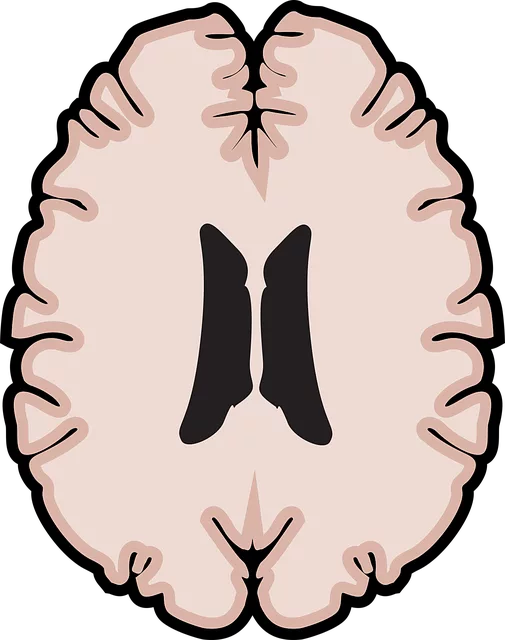Lakewood Kaiser Permanente psychiatry offers comprehensive emotion regulation techniques, combining mindfulness meditation, culturally sensitive practices, and cognitive strategies. Their approach helps patients identify triggers, develop personalized coping strategies, and cultivate emotional balance through self-awareness exercises, reframing thinking, and positive mindset cultivation. Behavioral techniques, including conflict resolution skills, teach individuals to respond adaptively to emotional situations, enhancing mental wellness and addressing both individual needs and cultural sensitivity in psychiatric care.
Emotion regulation techniques are essential tools in maintaining mental well-being, as highlighted by the expert psychiatrists at Lakewood Kaiser Permanente. This comprehensive guide explores various strategies for effective emotion management, from identifying triggers and cognitive reconfiguration to mindfulness practices and behavioral shaping. By understanding the basis of emotional balance, individuals can navigate life’s challenges with resilience. Discover how these techniques, offered by Lakewood Kaiser Permanente psychiatry, empower you to take control and enhance your overall mental health.
- Understanding Emotion Regulation: The Basis of Effective Mental Health Care at Lakewood Kaiser Permanente Psychiatry
- Identifying Triggers: A Key Step in Learning to Manage Emotions
- Cognitive Strategies: Rewiring Your Brain for Emotional Balance
- Mindfulness and Meditation Practices for Daily Emotion Regulation
- Behavioral Techniques: Shaping Healthy Responses to Emotional Situations
Understanding Emotion Regulation: The Basis of Effective Mental Health Care at Lakewood Kaiser Permanente Psychiatry

Emotion regulation techniques are fundamental to effective mental health care, as highlighted by the experts at Lakewood Kaiser Permanente Psychiatry. Understanding and mastering these skills can significantly enhance an individual’s overall well-being and quality of life. At this psychiatric facility, the focus is on empowering patients with tools to navigate their emotional landscape, fostering resilience and a sense of control.
The approach at Lakewood Kaiser Permanente Psychiatry emphasizes the integration of various techniques, such as mindfulness meditation, to promote self-awareness and stress reduction methods. Additionally, cultural sensitivity in mental healthcare practice plays a vital role, ensuring that treatment plans are tailored to an individual’s unique background and experiences. By combining these strategies, the psychiatry department aims to provide comprehensive care, addressing not just symptoms but also the underlying emotional dynamics that contribute to mental health challenges.
Identifying Triggers: A Key Step in Learning to Manage Emotions

Identifying triggers is a fundamental step in learning to manage emotions, as it allows individuals to gain insights into what sets off their emotional responses. This process involves becoming more attuned to one’s internal and external cues, which can range from specific situations or people to certain thoughts or memories. By recognizing these triggers, folks at Lakewood Kaiser Permanente psychiatry can begin to understand the connection between them and their emotional reactions, paving the way for effective emotion regulation techniques teaching.
Mental wellness coaching programs development often emphasizes crisis intervention guidance, encouraging individuals to identify their unique triggers and develop personalized strategies to cope. Emotional healing processes become more accessible when one understands what sets off their emotions, leading to better management and overall improved mental wellness.
Cognitive Strategies: Rewiring Your Brain for Emotional Balance

Cognitive strategies are a powerful tool for rewiring your brain and achieving emotional balance, as offered by experts at Lakewood Kaiser Permanente psychiatry. These techniques focus on modifying thought patterns to better manage emotions. By understanding how our thoughts influence feelings, individuals can gain control over their emotional responses. For instance, self-awareness exercises encourage individuals to recognize triggers and challenge negative or distorted thinking, replacing them with more balanced perspectives.
Mind Over Matter principles are at the core of this approach. Through consistent practice, one can train their brain to respond differently to stressful situations. This involves learning to reframe thoughts, engage in problem-solving behaviors, and cultivate a positive mindset, all of which contribute to enhanced emotional regulation.
Mindfulness and Meditation Practices for Daily Emotion Regulation

Mindfulness and meditation practices have emerged as powerful tools for daily emotion regulation, gaining significant traction in modern mental health care. These techniques, often integrated into programs like those offered by Lakewood Kaiser Permanente psychiatry, focus on training individuals to be present with their emotions and thoughts without judgment. By cultivating a non-reactive mindset, people can better navigate intense feelings, reduce stress, and prevent burnout.
Regular meditation practice has been shown to enhance emotional regulation by thickening the prefrontal cortex’s grey matter, allowing for improved decision-making and response inhibition. Furthermore, mindfulness exercises promote self-awareness, enabling individuals to recognize early signs of emotional distress and respond mindfully rather than reacting impulsively. Incorporating these practices into daily routines can foster a sense of calm and resilience, ultimately contributing to better mental well-being—a key aspect in addressing not just individual issues, but also cultural sensitivity in mental healthcare practice.
Behavioral Techniques: Shaping Healthy Responses to Emotional Situations

Behavioral techniques play a pivotal role in teaching individuals to regulate their emotions effectively. One such technique is shaping healthy responses to emotional situations. This involves learning to recognize and label emotions, understanding triggers, and developing adaptive coping strategies. For instance, at Lakewood Kaiser Permanente psychiatry services, professionals might guide patients through steps like identifying early signs of distress and applying mindfulness meditation practices to calm the mind and body.
By practicing conflict resolution techniques, individuals can transform challenging interactions into opportunities for growth. This involves communicating feelings assertively, negotiating differences, and finding mutually beneficial solutions. Integrating these skills with anxiety relief strategies, such as deep breathing exercises or progressive muscle relaxation, empowers people to navigate intense emotions with greater composure.
Emotion regulation techniques, as advocated by Lakewood Kaiser Permanente psychiatry, offer a comprehensive approach to mental health care. By understanding emotional triggers, rewire cognitive processes, and adopting mindfulness practices and behavioral techniques, individuals can gain significant control over their emotional responses. These strategies not only enhance overall well-being but also provide effective tools for navigating life’s challenges, ensuring a more balanced and resilient mindset.






